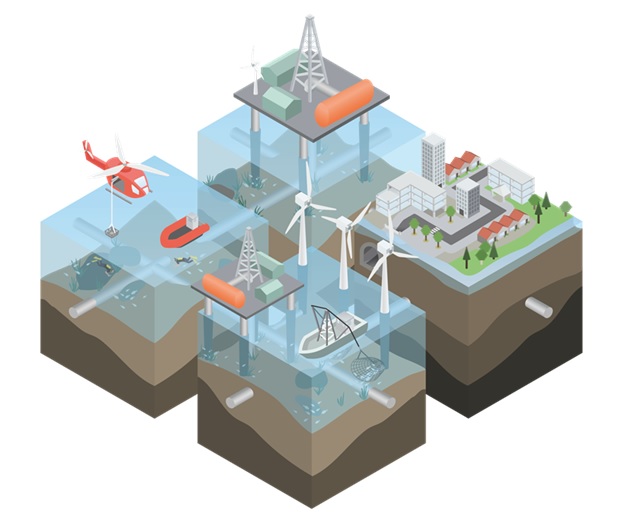UPDATE: Innovative North Sea green hydrogen production results in cost savings
A study published recently by Energy Delta Institute, part of New Energy Coalition, as one of the implementing parties in the North Sea Energy Consortium, is showing significant cost savings for green North Sea hydrogen production.
(Note: this report triggered some public discussions, updates can be found at the bottom of this page)
By using wind energy from surrounding wind farms to produce green hydrogen on existing platforms, the cost of laying a cable connection between the wind farm and the end user can be saved. The cost of generating power using offshore wind turbines and converting natural gas into hydrogen was also investigated in addition to these calculations.
Taking the above savings on the cable connection into account, the production costs of green hydrogen can be €1,- to €1.75 per kg, depending on the position off the coast. If a portion of the wind energy is converted into green hydrogen and the remaining electricity is transferred onshore the costs vary between €1.75 and €2.25 per kg.
These estimated costs are lower than most estimates for converting electricity into hydrogen onshore. Research leader Professor Catrinus Jepma, Professor of Energy and Sustainability at the University of Groningen, says “The North Sea offers the benefit of an increasingly short distance between wind farms and platforms. This results in savings on the cost of the power grid, while the hydrogen produced via the existing gas infrastructure can be transferred onshore.’’
Conversion of electricity into hydrogen is expected to become more and more important in view of the fluctuating value of the proportion of the electricity supply that has no storage. This is now the case when too much power is provided during periods of low demand. Furthermore, the power grid is sometimes unable to cope with a large supply of electricity and, for that reason, it is necessary to convert surpluses of electricity into an energy form that is easy to store, transport and use.
The complete study is available via the North Sea Energy Consortium website.

For further information, please read the following document: Clarification North Sea Energy Program
